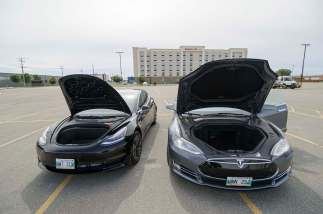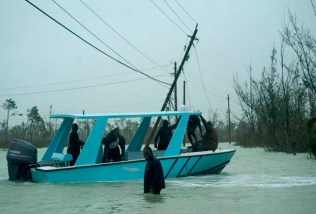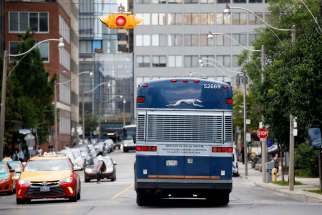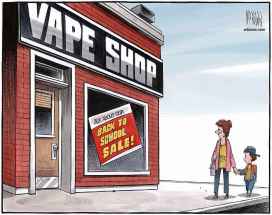EV sales charge up 80% since federal rebate
Read this article for free:
or
Already have an account? Log in here »
To continue reading, please subscribe:
Monthly Digital Subscription
$0 for the first 4 weeks*
- Enjoy unlimited reading on winnipegfreepress.com
- Read the E-Edition, our digital replica newspaper
- Access News Break, our award-winning app
- Play interactive puzzles
*No charge for 4 weeks then price increases to the regular rate of $19.00 plus GST every four weeks. Offer available to new and qualified returning subscribers only. Cancel any time.
Monthly Digital Subscription
$4.75/week*
- Enjoy unlimited reading on winnipegfreepress.com
- Read the E-Edition, our digital replica newspaper
- Access News Break, our award-winning app
- Play interactive puzzles
*Billed as $19 plus GST every four weeks. Cancel any time.
To continue reading, please subscribe:
Add Free Press access to your Brandon Sun subscription for only an additional
$1 for the first 4 weeks*
*Your next subscription payment will increase by $1.00 and you will be charged $16.99 plus GST for four weeks. After four weeks, your payment will increase to $23.99 plus GST every four weeks.
Read unlimited articles for free today:
or
Already have an account? Log in here »
Hey there, time traveller!
This article was published 04/09/2019 (2289 days ago), so information in it may no longer be current.
Manitobans are taking advantage of the $5,000 federal subsidy for electric cars, but some are hamstrung by a lack of available cars to buy.
Electric vehicle sales increased by 80 per cent in Manitoba in April, May and June, compared with the same period last year, according to CanadaEVsales.com.
Experts say that’s because a federal rebate came into effect May 1, knocking $5,000 off the price of any electric or plug-in hybrid vehicle costing less than $55,000 with a goal of levelling the playing field with cheaper gas-powered cars.
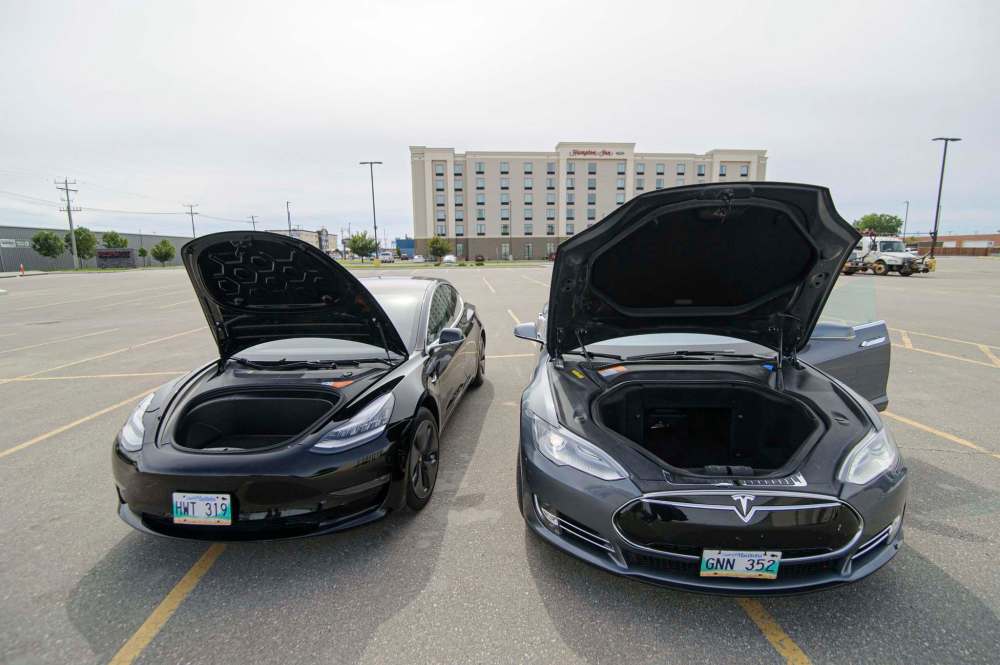
!function(e,t,s,i){var n=”InfogramEmbeds”,o=e.getElementsByTagName(“script”)[0],d=/^http:/.test(e.location)?”http:”:”https:”;if(/^/{2}/.test(i)&&(i=d+i),window[n]&&window[n].initialized)window[n].process&&window[n].process();else if(!e.getElementById(s)){var r=e.createElement(“script”);r.async=1,r.id=s,r.src=i,o.parentNode.insertBefore(r,o)}}(document,0,”infogram-async”,”https://e.infogram.com/js/dist/embed-loader-min.js”);
The effect of the rebate is “huge, absolutely huge, unequivocal, we don’t even have to qualify it,” said Robert Elms, president of the Manitoba Electric Vehicle Association. “Folks want to go electric,” he added, and the rebate is pushing them to do it.
There’s about 496 electric vehicles registered to drive in Manitoba, including fully electric battery-electric vehicles (BEVs) and plug-in hybrids (PHEVs) like the Chevrolet Volt that can run on gas when the battery runs out of charge.
Transit should get break for going electric
Transit services should also get a boost for going electric, says a U of M sustainability economics instructor.
Robert Parsons wrote a paper on the need to rethink — mainly simplify — incentives to move to electric buses.
Transit services should also get a boost for going electric, says a U of M sustainability economics instructor.
Robert Parsons wrote a paper on the need to rethink — mainly simplify — incentives to move to electric buses.
“They’re the wave of the future, and everybody knows it. No one disagrees,” he said. “But as of now, they have no spectacular economic advantage.”
They cost more to buy but less to operate, he said.
He noted that Winnipeg’s own New Flyer makes plenty of buses, including electric buses.
He wants the Public Transit Infrastructure Fund to focus and simplify — because convoluted one-off funding is causing Canada to fall behind the U.S., he said.
“Bluntly, it’s bad. It is really complex, really convoluted,” he said of Canada’s funding.
“What a good idea would be is, a lot of provincial governments have used incentive programs for vehicles — Manitoba had one from 2006-10 for hybrid-electric vehicles. And that program was quite successful,” he said.
Just as subsidies help individuals see the cost benefits of buying an electric vehicle, he believes a bus rebate could help transit operators make that upgrade.
Although instead of $5,000, he’s recommending a rebate of $250,000 — from a six-year, $100-million fund, with a goal of getting three per cent of Canadian buses to zero emission. That level has been identified as the “first step” toward going electric, he said.
Seventy-two of them have plugged in since May 1, according to data compiled by Matthew Klippenstein, a B.C.-based engineer who tracks the Canadian electric car market at CanadaEVsales.com.
Those numbers don’t include thousands of hybrids on the road, like the popular Toyota Prius used by Winnipeg cab companies.
More than 14,000 Canadians bought electric vehicles and claimed the rebate in May, June and July, Transport Canada said. So far this year, electric vehicle sales are up 30 per cent nationwide.
But Klippenstein said as demand rises, so do wait times to buy electric vehicles.
“More people are coming in, they have to wait in line, the line’s getting longer,” he said. “If the automakers could magically turn on a switch, we’d see more cars, sales would increase. But it’s kind of like turning a big ship. It will take them a little while to catch up to the demand that’s there.”
Manufacturers can only make so many electric vehicles as demand expands, and most are sent to other countries.
Posted: A growing network of fast chargers for electric vehicles in the province — including four anticipated to open before the end of the year — will relieve "range anxiety" and drive consumers to trade in their gas-powered car keys, industry experts say. Fast-charger network will ease drivers off gas: advocates
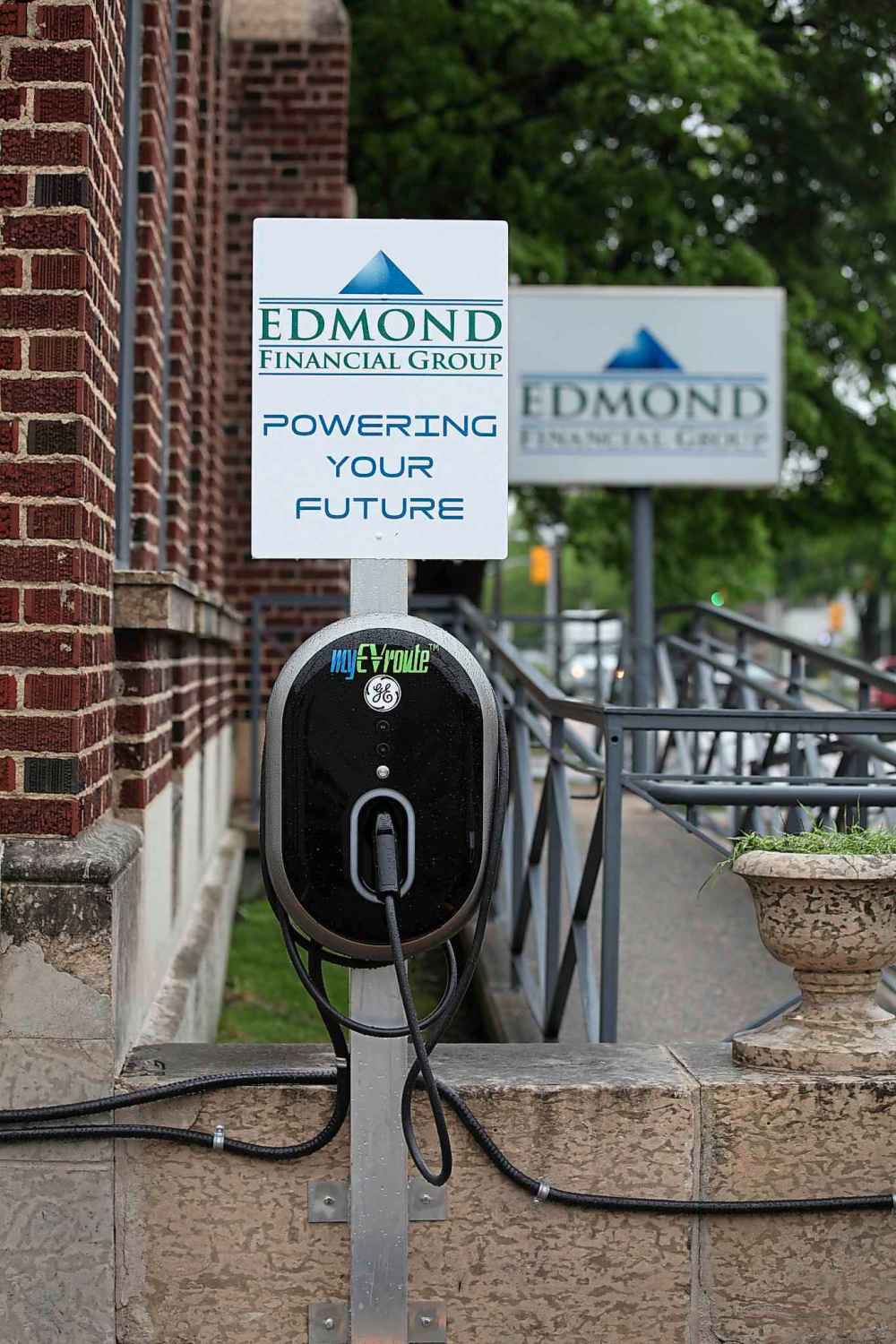
Of the vehicles available to Canadians, Klippenstein said most of those go to Quebec and B.C. — which have had provincial subsidies for years. Car dealers in those provinces also have mandates requiring them to sell a certain percentage of zero-emissions vehicles, Klippenstein said.
Nott Autocorp’s Trevor Nott said he has no trouble ordering in Teslas — a month later, they’re delivered.
“Literally, every day, I can’t go somewhere without someone asking me about electric vehicles,” he said.
The rebate has certainly increased demand. Some luxury EVs don’t qualify, but others like the Audi E-Tron get $2,500 off.
Nott called the switch to electric the biggest change in the history of the automobile, and is thrilled to be a part of it — he drives a Tesla SUV himself.
“I don’t think people are skeptical anymore,” Nott said. “It’s happening. It’s just happening a little slower on the prairies than in the rest of North America.”
Data from MEVA shows 38 new Tesla Model 3s have been registered in Manitoba as of August — compared to 37 in all of last year.
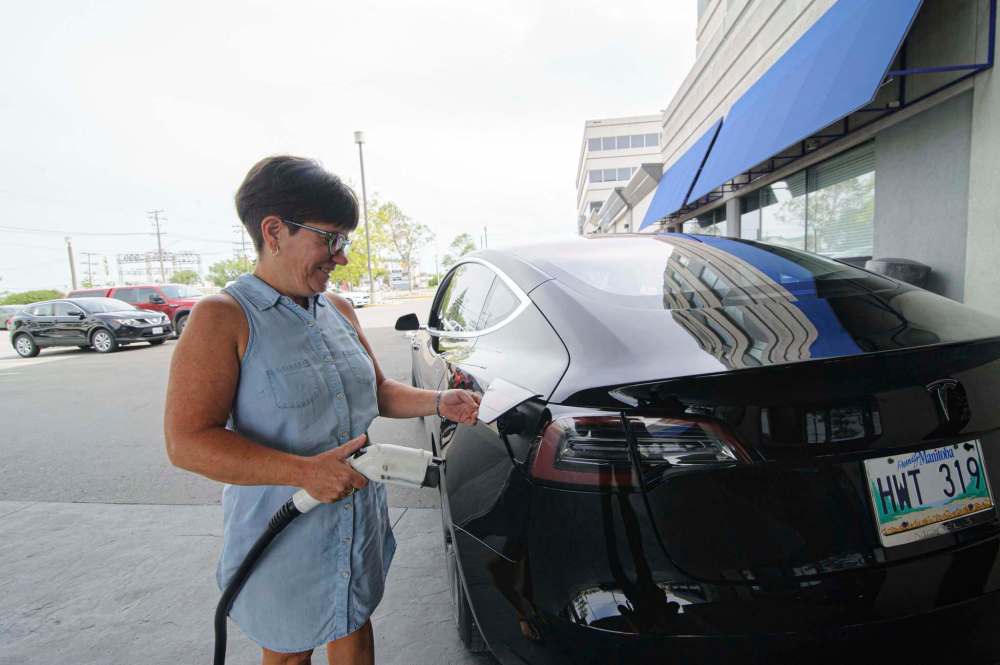
Ruth Deane and her husband have two Teslas parked in their St. Francois Xavier driveway.
“We’ve had the Model S since 2013, one of the first off the line, and we really liked it,” she said. “So when the Model 3 came out and wasn’t as much money, we thought, we need a second car, we’ll get a Model 3.”
With the 499-kilometre range of the Model 3, she wasn’t worried about running out of charge on a road trip over the long weekend.
Teslas can travel 100 kilometres or more than other EVs on a single charge; Elms believes that’s why they’re so popular in Manitoba, where there are cottages and far-flung families to visit.
Tesla now offers a Model 3 trim level costing less than $55,000 so it’s eligible for the federal rebate.
Klippenstein and Elms agree that forthcoming electric trucks and SUVs will increase the potential customer base that might consider an electric vehicle.
“It’s the crucial category," Elms said.
After a high-profile commercial showing an all-electric truck towing a million-pound train, Ford is preparing to launch its battery-electric SUV in 2020. Other competitors are hot on their lack of tailpipes.
“The competition will be fast, furious, people are looking for those vehicles,” Elms said.
Klippenstein is “cautiously optimistic” that automakers will make more electric cars available to Canadians once they see proven demand.
There are some downsides to electric vehicles in Canada; Deane said hers loses range in cold winter temperatures, and it’s not always easy to find a charging station, though that’s changing.
“With superchargers being built in Portage and Brandon and Whitemouth (this year), life will be getting better soon.”
tvanderhart@freepress.mb.ca
Twitter: @tessavanderhart





